Τεκμήρια από Κέντρον Ερεύνης της Ιστορίας του Ελληνικού Δικαίου
<< 10
10 >>
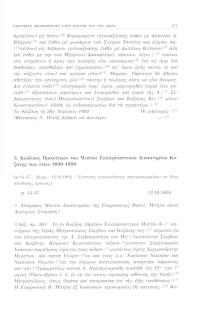
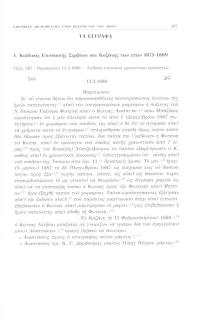
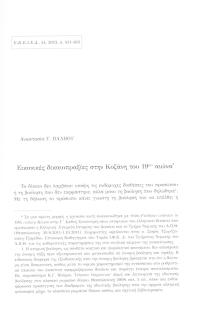
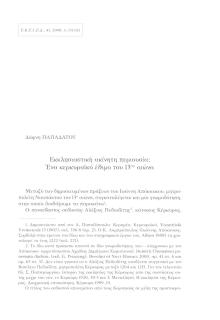
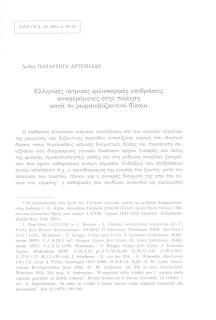
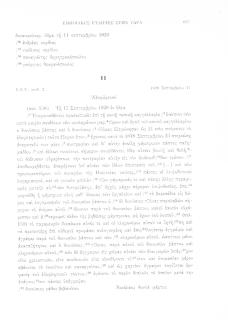
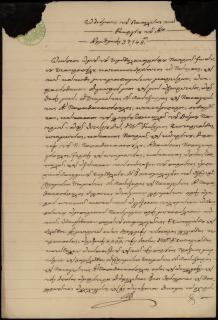
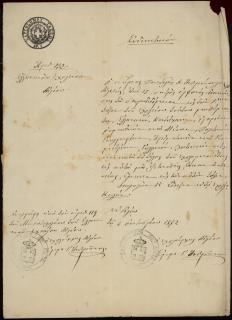
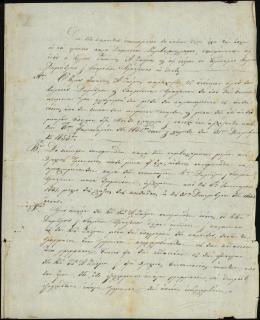
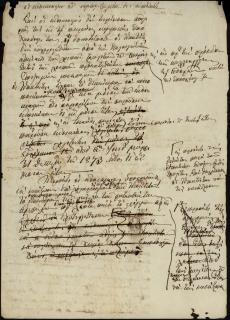
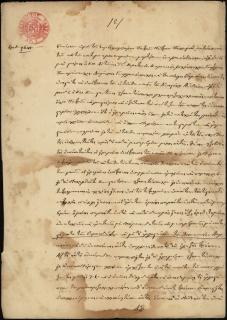
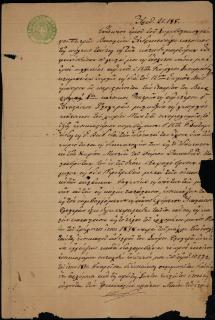 << 10
10 >>
<< 10
10 >>
Σύνολο: 11921

Εικονικές δικαιοπραξίες στην Κοζάνη του 19ου αιώνα
Ενότητα: Νομικές Πηγές της Μεταβυζαντινής Περιόδου και του Νεοτέρου Ελληνισμού
44
Εικονικές δικαιοπραξίες στην Κοζάνη του 19ου αιώνα
Ενότητα: Νομικές Πηγές της Μεταβυζαντινής Περιόδου και του Νεοτέρου Ελληνισμού
44
Εικονικές δικαιοπραξίες στην Κοζάνη του 19ου αιώνα
Ενότητα: Μελέτες Ιστορίας Δικαίου
A.G. Paliou: Fictitious contracts in Kozani during the 19th century The will, as an internal element, is not important in the eyes of the law unless it is stated in one way or another. In that case, it affects and binds on the declaring parties. The will is a major producing cause to achieve a desired legal result and its expression is the legal fact to produce this result. Therefore, there is neither a contract without a declaration of will, nor a legal effect without the coincidence of the will and its declaration. The conflict between will and its declaration is -in modern terms- a defect of the above mentioned contract and when is made on purpose it invalidates this contract as being fictitious and void. Fictitiousness was not unknown in Byzantine-roman law or during the period of post-Byzantine law. In this paper we attempt to outline the various manifestations of voluntary divergence between will and its declaration in contracts of the 19th century in Kozani (a town of Western Macedonia. Greece with about 70.000 residents today). W...
Εκκλησιαστική ακίνητη περιουσία: Ένα κερκυραϊκό έθιμο του 13ου αιώνα
Ενότητα: Μελέτες Ιστορίας Δικαίου
D. Papadatou, Church lands: A Corfiot custom of the 13th century In a responsum issued by the Metropolitan of Naupaktos, Ioannis Apocaucos, there is a reference to a local custom on the island of Corfu in which the exchange of church lands with private individuals was recognized as valid, under certain conditions. In this paper we demonstrate that such exchanges, in theory incompatible with the principle of the inalienability of church property, were not in fact unknown in Byzantine legislation. Through a comparison of the relevant legislative provisions (Novellae of Justinian 7.4 and 120.2) with the Corfiot custom, we see that the latter deviates from the former only in respect of aspects of the contract which were of secondary importance. In fact, in terms of the actual result ensuing from these transactions, we see that despite the secondary differences to be observed between the legislation and the Corfiot custom, these transactions invariably proved advantageous to the Church, which was thereby enabled to increase twofold its possess...
Ελληνικές ιατρικές-φιλοσοφικές επιδράσεις αναφερόμενες στην πώληση κατά το ρωμαιοβυζαντινό δίκαιο
Ενότητα: Μελέτες Ιστορίας Δικαίου
38
Εμπορικές εταιρίες στην Ύδρα
Ενότητα: Νομικές Πηγές της Μεταβυζαντινής Περιόδου και του Νεοτέρου Ελληνισμού
27-28
Εμπορικό, δανειστικό συμβόλαιο, που συντάσσει ο συμβολαιογράφος Πατρών Ιωάννης Σταυρόπουλος, μεταξύ αφενός του Σταμάτη Ν. Μάντζαρη, του Παναγιώτη Α. Παππαθανασόπουλου και αφετέρου του Γεωργίου Σωτηριάδη, ως εκ τρίτου, ο πατέρας του Μ. Παππαθανασόπουλου Αθανάσιος Παπαγεωργόπουλος.
Ενότητα: Συλλογή Χ. Παπαστάθη
Δεν υπάρχει περιγραφή
Ενδεικτικό του μαθητή Παντελή Δ. Ανδρεόπουλου από το Ελληνικό Σχολείο Αιγίου.
Ενότητα: Συλλογή Χ. Παπαστάθη
Το ενδεικτικό υπογράφει ο σχολάρχης Αιγίου Εμμ. Ανδρούτσος.
Ενοικιαστήριο εργαστηρίων μεταξύ αφενός του Ιωάννη Α. Ζαΐμη και αφετέρου των εμπόρων Δημητρίου και Σπυρίδωνα Πράτζικου για πέντε έτη από 1η Ιανουαρίου 1851 μέχρι 31 Δεκεμβρίου 1855.
Ενότητα: Συλλογή Χ. Παπαστάθη
Πράτζικας ή Πράτζικος.
Ενοικιαστήριο συμβόλαιο κτημάτων και παραχώρησης επικαρπίας (σχέδιο) για το διάστημα από 1η Ιανουαρίου 1873 μέχρι 31 Δεκεμβρίου 1875 στο χωριό Μποντιά μεταξύ αφενός του Γεωργίου Σωτηριάδη και αφετέρου των Σωτηρίου [...], Σπύρου Φλογερά, Ευστάθιου Τζαγκαρά, Γεωργίου Καραπατάκη, Θανάση Καραπατάκη, Φίλιππου [Τραγότζαλα] και Β. Οικονομόπουλου.
Ενότητα: Συλλογή Χ. Παπαστάθη
Με πολλά διαγραμμένα σημεία. Ανυπόγραφο.
Ενοικιαστήριο συμβόλαιο κτημάτων, που συντάσσει ο συμβολαιογράφος Πατρών Πέτρος Παλαμάς, μεταξύ αφενός των Αντώνιου Ιω. Κρητικού, Κυριάκου Φιλόπουλου, Γεωργίου Παναγόπουλου, Λάμπρου Γεωργακόπουλου και Βασιλείου Γριμάνη κι αφετέρου του Κωνσταντίνου Τζανετόπουλου.
Ενότητα: Συλλογή Χ. Παπαστάθη
Δια το ακριβές της αντιγραφής: Πάτρα 17 Μαΐου 1861. Ο συμβολαιογράφος Πατρών Ανδρέας Θεοχαρόπουλος.

